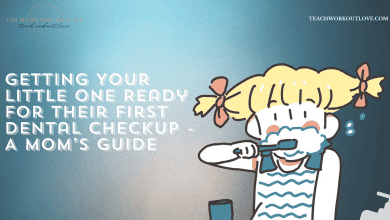
Parenting is one of the most important jobs out there. As parents, we are teaching a whole new generation how to be kind, thoughtful, curious, creative, and innovative. Without parents, our children wouldn’t have any guide. So how do you know if you’re parenting style is working? There are multiple different parenting styles and every parent-child relationship is different, but there are some common characteristics of good parenting that can help raise strong, independent, and thoughtful children and adults. Let’s examine these “good” parenting tactics and the benefits they will have on your kids.
Photo by Kenny Krosky on Unsplash
Parenting Style: Flexible Leadership
Affect: Self-Sufficient Decision Making
Finding the difference between authoritarian and authoritative parenting is difficult, but one of the most important parenting skills to work on. Authoritarian parents are those that think that children should be seen and not heard and run a strict household with lots of rules. While rules are certainly important, authoritarian parents rarely negotiate with their children and don’t explain the reasons behind their rules.
In contrast, authoritative parents have structure and rules, but these rules are discussed with the children themselves and explained thoroughly. This provides a flexible leadership structure that can eventually help children make their own decisions. Rather than just following the strict rules, children of authoritative parents understand the consequences of their actions and set guidelines for themselves, as well. This leads to strong communication and decision-making skills.
Parenting Skill: Confidentiality and Support
Affect: Trust
Psychologists call parents that give too much flexibility permissive parents. These parents may have rules, but they rarely enforce them. Their parenting style comes from love, but they give their children too much, which can make them entitled. Another characteristic of permissive parents is that they act more like a friend than a parent. But there is an important distinction between permissive parenting and providing confidentiality and support.
There will be plenty of times in your child’s life that they’ll come to you for support. It could be their first break up, a bully in school, or a failed test in school. These situations present an opportunity to have open conversations with your child and provide them the guidance they need. You can act like their friend in that they can trust you, but still teach them that you are their parent first and foremost. Offering this level of support and love will lead to children who are more trusting of both you and, eventually, other relationships.
Parenting Skill: Transparency
Affect: Effective Communication
We all want to craft a perfect world for our children, but sometimes things go wrong. This could be you losing your job, downsizing your home due to finances, going through a divorce, or other obstacles. Some parents might be tempted to hide this pain and struggle from their children. Transparent communication is actually the best way to approach situations like these.
This transparent communication parenting style will teach your child the importance of communication, especially when it’s surrounding difficult conversations. Don’t feel like you have to hide your emotions from your children because suppressing your emotions will only make things worse. Instead, have an open conversation about how you both are feeling and if you (or your child) is going through a rough time, brainstorm ways to get through it together.
Parenting Skill: Responsibility
Affect: Responsible Children
These parenting skills are relatively common sense. But it’s important to lay out how being responsible. Setting a good example for your children can have a beneficial impact on them. There are the little things, like always driving safely, always wearing a seatbelt, and wearing sunscreen when going to the beach. Then there are the big things, like performing well at work, maintaining a healthy relationship with your parents and in-laws, and being a generally good person. The little things and the big things both show responsibility. This responsibility will quickly be passed along to your children, as well.
Want to raise even more responsible and conscientious children? Explain your actions to them and why you do what you do. That could be as simple as sitting them down while paying bills or taxes and explaining the importance of these obligations. It could be as grand as donating your time to a local charity or non-profit together. Explaining the reasons behind your responsible actions will help your children grow up responsible, as well.
Being a good parent
There is so much advice surrounding being a “good” parent, and sometimes it can be hard to tell whether what you’re doing is right or wrong. The above parenting styles will help your children grow up with responsibility, communication skills, critical thinking skills, and much more.
Skills like these will not only help them in school and growing up, but also later on in life. Children of good parents grow up to have stronger interpersonal relationships, more professional success, and more self-love and confidence.
What do you define as a “good” parent? Do you have any skills for other moms to learn by? We’d love to learn more about your parenting style!
This post may contain affiliate links. Please visit the disclaimer page for more information.







This is great and spot on! Parenting style plays such a large role in how our children grow!